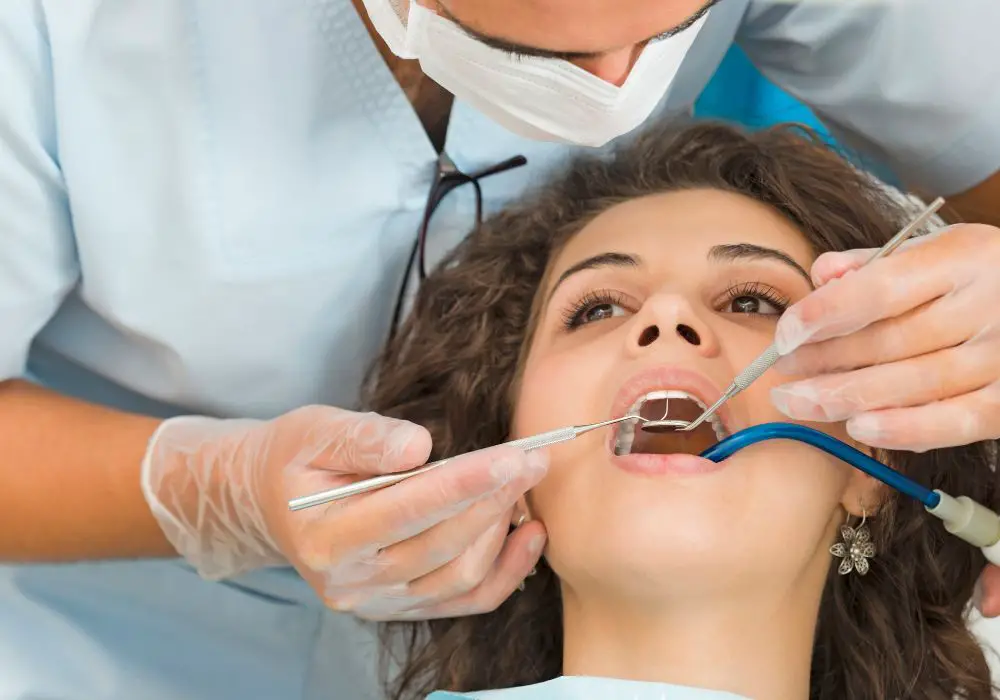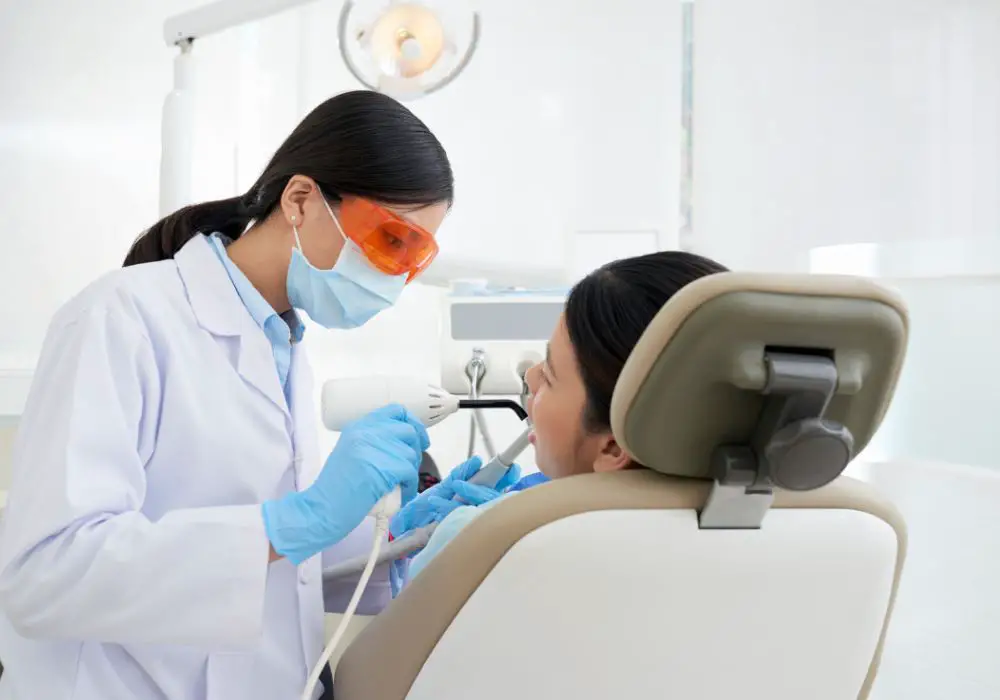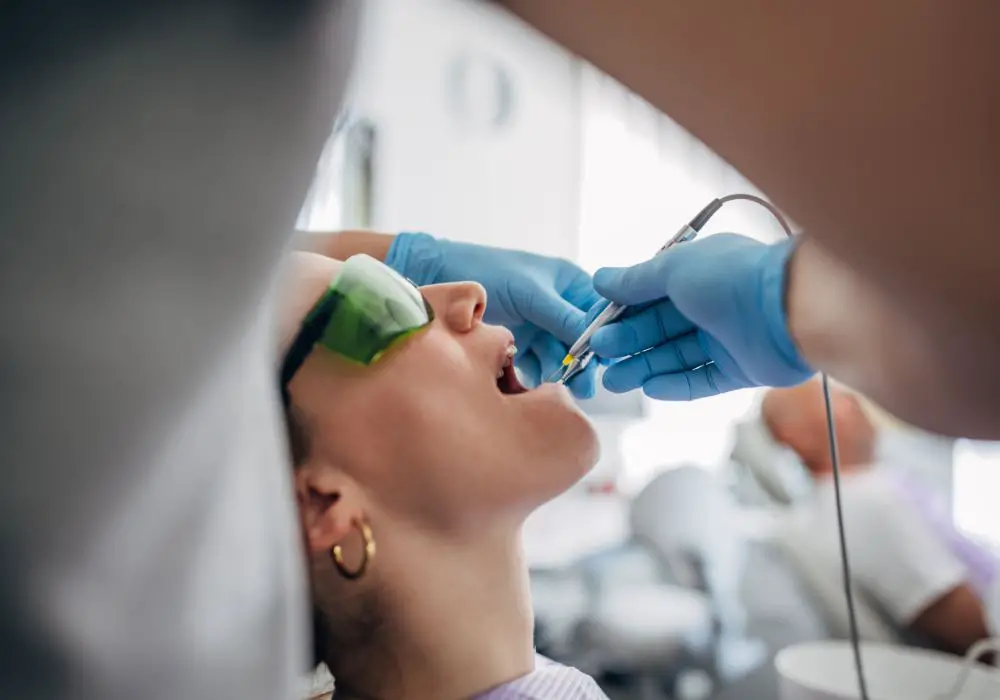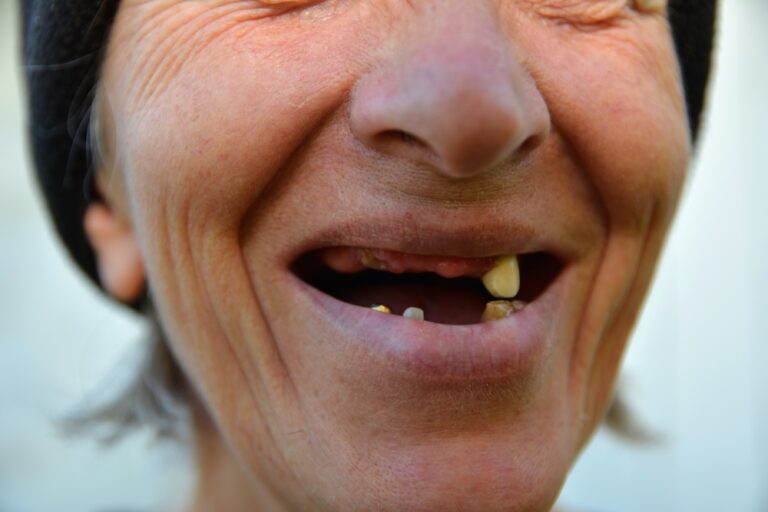If you’re unhappy with the appearance of your teeth, you may be wondering how you can fix them permanently. There are several options available, depending on your specific needs and budget. In this article, we’ll explore some of the most common ways to fix your teeth permanently, so you can decide which option is right for you.
One popular option for fixing teeth permanently is dental implants. These are artificial teeth that are surgically implanted into your jawbone, providing a long-lasting and natural-looking solution for missing or damaged teeth. Another option is dental veneers, which are thin shells that are bonded to the front of your teeth to improve their appearance. Both of these options can provide a permanent fix for your teeth, but they can be costly and may not be covered by insurance.
Another option for fixing your teeth permanently is orthodontic treatment, such as braces or clear aligners. These can help straighten your teeth and correct issues with your bite, providing a long-lasting solution for crooked or misaligned teeth. While orthodontic treatment can take some time to complete, the results can be permanent and can greatly improve the appearance and function of your teeth.
Understanding the Basics of Dental Health

Maintaining good dental health is essential for a healthy smile and overall well-being. Here are some basic tips to keep your teeth and gums healthy:
Brushing
Brush your teeth at least twice a day, for two minutes each time, using fluoride toothpaste. Make sure to brush all surfaces of your teeth, including the fronts, backs, and chewing surfaces. Use a soft-bristled toothbrush and replace it every three months or sooner if the bristles become frayed.
Flossing
Flossing is an essential part of oral hygiene. It helps remove food particles and plaque from between your teeth and along the gum line. Use about 18 inches of floss and wrap it around your fingers, leaving about two inches of floss to work with. Gently slide the floss between your teeth, using a back-and-forth motion. Curve the floss around the base of each tooth, making sure to go beneath the gum line.
Eating a Healthy Diet
Eating a balanced diet that is rich in fruits, vegetables, and whole grains can help keep your teeth and gums healthy. Avoid sugary and acidic foods and drinks, which can erode tooth enamel and lead to cavities.
Visiting the Dentist
Regular dental checkups are important for maintaining good oral health. Your dentist can detect and treat dental problems early, before they become more serious. Visit your dentist at least twice a year for cleanings and checkups.
By following these basic tips, you can help keep your teeth and gums healthy and avoid dental problems.
Identifying Your Dental Issues
When it comes to fixing your teeth permanently, it’s important to first identify the specific dental issues you’re dealing with. Here are some common dental issues you may be facing:
Cavities and Tooth Decay
Cavities and tooth decay can cause pain and discomfort, and if left untreated, they can lead to more serious dental problems. Some signs that you may have a cavity or tooth decay include:
- Sensitivity to hot or cold food and drinks
- Pain when biting down
- Visible holes or pits in your teeth
If you suspect you have a cavity or tooth decay, it’s important to see a dentist as soon as possible. Your dentist can determine the extent of the damage and recommend the best course of treatment.
Gum Diseases
Gum diseases can range from mild inflammation to more serious conditions that can cause tooth loss. Some signs of gum disease include:
- Red, swollen, or tender gums
- Bleeding gums when brushing or flossing
- Receding gums
If you suspect you have gum disease, it’s important to see a dentist or periodontist. They can evaluate the extent of the damage and recommend the best course of treatment.
Tooth Discoloration
Tooth discoloration can be caused by a variety of factors, including aging, smoking, and certain foods and drinks. Some signs of tooth discoloration include:
- Yellow or brown stains on your teeth
- Darkening of your teeth
Tooth discoloration can be treated with professional teeth whitening or other cosmetic dental procedures. Talk to your dentist about the best options for you.
Tooth Erosion
Tooth erosion occurs when the enamel on your teeth is worn away, exposing the dentin underneath. Some signs of tooth erosion include:
- Sensitivity to hot or cold food and drinks
- Rounded teeth
- Cracks and chips in your teeth
Tooth erosion can be caused by a variety of factors, including acid reflux, certain medications, and excessive brushing. Your dentist can evaluate the extent of the damage and recommend the best course of treatment.
By identifying the specific dental issues you’re dealing with, you can work with your dentist to develop a plan to fix your teeth permanently.
Permanent Dental Solutions

If you’re looking for a permanent solution to fix your teeth, there are several options available to you. In this section, we’ll go over some of the most common permanent dental solutions, including dental implants, veneers, crowns, and bridges.
Dental Implants
Dental implants are a popular option for replacing missing teeth. They are a permanent solution that involves surgically placing a titanium post into your jawbone, which acts as a replacement for the root of your missing tooth. Once the post is in place, a crown is attached to the top, giving you a natural-looking and functioning tooth.
Dental implants are a great option for those who have lost a single tooth or multiple teeth, as they provide a long-lasting and durable solution. They also help to maintain the health of your jawbone and prevent bone loss, which can occur when teeth are missing.
Veneers
Veneers are a permanent solution for those who want to improve the appearance of their teeth. They are thin, custom-made shells that are placed over the front of your teeth to improve their shape, size, and color.
Veneers are a great option for those who have chipped, cracked, or stained teeth, as they can provide a natural-looking and long-lasting solution. They are also resistant to staining and can help to protect your teeth from further damage.
Crowns
Crowns are a permanent solution for those who have damaged or decayed teeth. They are custom-made caps that are placed over your existing tooth to restore its shape, size, and strength.
Crowns are a great option for those who have large fillings, cracked or broken teeth, or teeth that have undergone root canal treatment. They are also a great way to improve the appearance of your teeth, as they can be made to match the color of your existing teeth.
Bridges
Bridges are a permanent solution for those who have one or more missing teeth. They involve placing a custom-made prosthetic tooth or teeth between two existing teeth, which are then capped with crowns to hold the bridge in place.
Bridges are a great option for those who want to restore their ability to chew and speak properly, as well as improve the appearance of their smile. They are also a great way to prevent the remaining teeth from shifting out of place and causing further dental problems.
In conclusion, there are several permanent dental solutions available to you if you’re looking to fix your teeth. Whether you need to replace missing teeth, improve the appearance of your smile, or restore damaged or decayed teeth, there is a solution that can meet your needs. Consult with your dentist to determine which option is best for you.
Maintaining Your Dental Health
Taking care of your teeth is crucial if you want to keep them healthy and strong. Here are some tips on how you can maintain your dental health:
Regular Dental Check-Ups
Regular dental check-ups are essential to maintain good oral health. Your dentist can detect any dental problems early on and treat them before they become more serious. It is recommended to visit your dentist at least once a year, even if you have no natural teeth or have dentures.
Proper Oral Hygiene
Proper oral hygiene is crucial to maintaining healthy teeth and gums. Here are some tips on how to practice good oral hygiene:
- Brush your teeth thoroughly twice a day with fluoride toothpaste
- Floss daily between the teeth to remove dental plaque
- Brush carefully and gently along your gum line
- Lightly brush your tongue or use a tongue scraper to help keep your mouth clean
- Clean between your teeth with dental floss, pre-threaded flossers, a water flosser, or a similar product
- Rinse after you floss
Healthy Diet
Eating a healthy diet can also help maintain good dental health. Here are some tips on what to eat and what to avoid:
- Eat a variety of foods from each of the five major food groups: fruits, vegetables, grains, protein foods, and dairy
- Limit sugary and acidic foods and drinks, such as candy, soda, and citrus fruits
- Drink fluoridated water to help prevent tooth decay
In conclusion, maintaining good dental health requires a combination of regular dental check-ups, proper oral hygiene, and a healthy diet. By following these tips, you can keep your teeth healthy and strong for years to come.
Cost and Insurance Coverage of Dental Procedures
Taking care of your dental health is important, but it can also be costly. Understanding the cost and insurance coverage of dental procedures can help you plan and budget for your dental care needs.
Dental insurance can help cover the cost of some dental procedures, but it’s important to understand what your plan covers and what it doesn’t. Dental insurance plans typically cover preventive care such as cleanings, X-rays, and exams. Basic restorative procedures such as fillings and extractions are also usually covered, but coverage for more complex procedures such as root canals, crowns, and bridges may vary.
If your dental insurance plan doesn’t cover a procedure or if you don’t have dental insurance, you may be responsible for paying for the entire cost of the procedure out of pocket. The cost of dental procedures can vary depending on several factors such as the type of procedure, the materials used, and the location of the dental practice.
Here are some estimated costs for common dental procedures:
- Cleanings: $75-$200
- Fillings: $100-$500
- Extractions: $75-$800
- Root canals: $500-$1,500
- Crowns: $800-$1,500
- Implants: $1,500-$6,000
Keep in mind that these are just estimates and actual costs may vary depending on your specific situation.
If you’re concerned about the cost of dental procedures, talk to your dentist or dental insurance provider to see if there are any options available to help make dental care more affordable. Some dental practices offer payment plans or financing options, and there may be community programs or clinics that offer discounted or free dental services for those in need.
Remember, taking care of your dental health is important for your overall health and well-being. Don’t let concerns about cost prevent you from getting the care you need.
Choosing the Right Dental Professional

When it comes to fixing your teeth permanently, choosing the right dental professional is crucial. Here are some tips to help you find the right dentist or orthodontist:
Look for Credentials and Experience
Make sure the dental professional you choose has the necessary credentials and experience to perform the procedure you need. Check their education, training, and any certifications they have. You can also ask for before-and-after photos of previous patients to get an idea of their work.
Consider the Cost
The cost of dental procedures can vary greatly depending on the location, the dental professional, and the procedure itself. Make sure you understand the costs involved and what your insurance will cover. You can also ask about payment plans or financing options.
Read Reviews
Reading reviews from previous patients can give you a good idea of what to expect from a dental professional. Look for reviews on their website, social media, or other online platforms. You can also ask for referrals from friends or family members who have had similar procedures done.
Schedule a Consultation
Before committing to a dental professional, schedule a consultation to discuss your options and ask any questions you may have. This is a good opportunity to get a feel for the dental professional and their staff, as well as to discuss any concerns or fears you may have.
By taking the time to find the right dental professional, you can ensure that your teeth are fixed permanently and that you receive the best possible care.
Frequently Asked Questions
What are my options for full mouth teeth replacement?
If you need to replace all of your teeth, there are several options available, including dentures, dental bridges, and dental implants. Dentures are removable and can be a more affordable option, but they may not fit as well as other options. Dental bridges are a fixed option that requires the support of the surrounding teeth, but they can be a good choice for some people. Dental implants are a more permanent solution that involves surgically placing a titanium post into the jawbone to support a replacement tooth.
Are there affordable options for tooth replacement?
Yes, there are affordable options for tooth replacement, such as dentures and dental bridges. However, it is important to keep in mind that these options may not be as long-lasting or durable as dental implants.
Can missing teeth be fixed without implants?
Yes, missing teeth can be fixed without implants. Dental bridges and dentures are two common options for replacing missing teeth. Dental bridges involve placing a replacement tooth between two existing teeth, while dentures are removable and can replace multiple missing teeth.
Is it possible to permanently fix damaged teeth?
Yes, it is possible to permanently fix damaged teeth through procedures such as dental crowns and veneers. Dental crowns are custom-made caps that cover the entire tooth, while veneers are thin shells that are placed over the front of the tooth. Both options can improve the appearance and function of damaged teeth.
What are the cheapest ways to fix teeth without insurance?
Some of the cheapest ways to fix teeth without insurance include practicing good oral hygiene, such as brushing and flossing regularly, and avoiding sugary and acidic foods and drinks. Additionally, there are some low-cost dental clinics and community health centers that may offer affordable dental services.
How can I replace a missing tooth on my own?
It is not recommended to replace a missing tooth on your own as it can lead to further damage and complications. It is best to consult with a dental professional to determine the best course of action for replacing a missing tooth.







